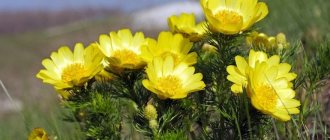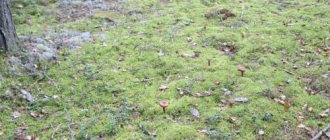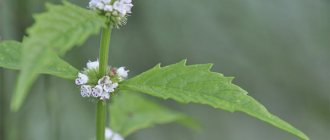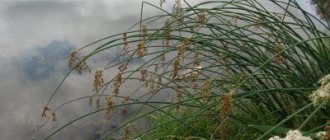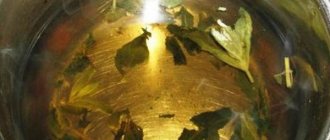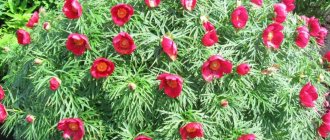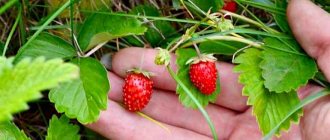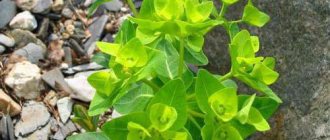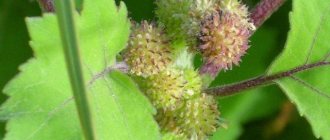What is passionflower
Passionflower is a tropical vine that moves along a support with the help of tendrils (shoots). It grows in humid and hot climates. It has large leaves and unusual flowers with a strong aroma. Due to the appearance of the flower corolla, the plant is called passion flower. The fruit is edible in some species and is known as passion fruit.
All herbaceous parts of passionflower are used in medicine. Extracts, homeopathic remedies, and tablets are prepared from it. The calming, hypnotic, and analgesic effects of the plant are used for treatment. od
Caring for passionflower at home
Now we will tell you how to care for passionflower in order to grow a beautiful plant and maintain its decorative appearance, ability to bloom abundantly and bear fruit for many years.
Location and lighting
Passionflower is a very light-loving flower. It will grow well and bloom profusely only in bright sunlight. Therefore, choose a place for him near windows in the southeast or southwest directions. South-facing windows will be even better, provided that you make sure that the rays of the midday sun do not fall on the delicate leaves and buds of a young flower. To do this, the south window must be equipped with blinds or a light curtain, which must be removed in the morning and evening hours.
An adult plant is not afraid of the sun. It even needs direct sunlight. Whenever possible, take passionflower outdoors, where there is plenty of light and warmth. This plant will grow in the shade, but will not bloom.
Air temperature and humidity
Passionflower adapts well to room temperature. In summer it is 20–27 g, and in winter 15–18 g is enough. In the warm season, some species can and should be taken out to the balcony or veranda. Find a sunny place there, protected from drafts and natural precipitation, where passionflower will thrive until the autumn temperature drops.
This tropical plant cannot tolerate intense heat and stagnant, stuffy air. If you have a large specimen that grows on supports, you will not be able to take it outdoors for the summer. Then you will have to ventilate the room more often, every evening moisten the leaves of the vine and the air around it with settled water using a spray bottle. The stream of water should not come into contact with the flowers.
In winter, it will be especially difficult for a flower to grow in a room with heating on. We recommend placing the pot in a tray with wet expanded clay. For more modest-sized passionflower specimens, we recommend giving them a warm shower at least once a week. This should be done carefully so as not to break the shoots. But we remind you that this is only suitable for medium and small sized vines. You will not be able to bathe the giants that climb along the walls with the help of supports and devices in the form of gratings or ladders. Then ventilate and spray the room more often, wash the leaves.
Watering
Passionflower uses a lot of water. The green mass with large leaves evaporates a lot of moisture and constantly needs to be replenished. Watering should be done frequently and regularly, until the earthen clod is completely soaked. But excess water from the pan must still be drained so that it does not stagnate and destroy the roots of the flower. In the summer, you don’t have to wait for the soil in the pot to dry out and water it several times a week. The frequency and volume of watering should be reduced only in winter, when the vine is in a cool room. Carry out the next watering only after the top layer of soil has dried.
Use filtered water (rain, boiled) for irrigation and spraying. As a last resort - settled tap water at room temperature.
Top dressing
During the period of active growth and flowering, passionflower should be fed every 10 days after the next watering or during it, so as not to inadvertently burn the dry roots. For feeding, complex mineral fertilizers for decorative flowering indoor plants and organic fertilizers are used, alternating them with each other. Once a month, we recommend replacing root feeding with foliar feeding by adding fertilizer in a halved dose to the water for spraying. At the beginning of spring, the fertilizing should contain a higher nitrogen content so that the growth of shoots and leaves is more active. After a set of buds, potassium and phosphorus should predominate in the fertilizer, then the flowering will be more lush and vibrant.
Fertilizing is not carried out in winter, during the dormant period. If the vine is sick, then fertilizers are also not applied to the soil.
Support
The long stems of the vine grow quickly, become woody and become heavy. Numerous leaves, buds and fruits make them even heavier. If you don't help the plant, it will break. Therefore, the flower needs fairly strong support. It will be better if this support is in the form of a fancy but durable ladder, stylized lattice or other original shape.
Note that the vine that stretches high along the support blooms more abundantly and longer than the one that is twisted into a ring.
Direct the shoots regularly towards the support so that they cling to it with their flexible tendrils and hold on tightly.
This may be interesting: Types and varieties of indoor Anthurium (Male happiness)
Trimming
In the first year of life, when the plant is just forming, pruning is not required for the vine. Begin pruning in the second or third year in spring and fall to encourage vigorous growth and branching of the vine. We'll tell you how best to do this.
- Prepare a clean, sharp tool - garden shears, pruning shears, a knife.
- First of all, prune dry, limp, diseased or injured branches, if any.
- Remove shoots growing at the base of the vine.
- Trim off the top branches.
- Trim last year's shoots by 1/3.
Also follow a few rules:
- Do not touch strong and strong young shoots, just pinch them, as it is on them that the buds will form.
- When the vine fades, in the fall, you will need to completely cut off the secondary bald long shoots, and shorten the remaining strong shoots by 3/4 of the length.
- Treat the cuts in a timely manner with potassium permanganate or sprinkle with activated (or charcoal) carbon.
Transfer
We recommend replanting the vine in the spring after the next pruning. Replant young plants in a new pot every spring, and adult plants once every 2-3 years. The older the plant, the less it needs to be replanted. The time will come when it will be enough to replace the top layer of substrate in the old pot with fresh soil.
During transplantation, pay attention to the roots, their color, and elasticity. If there are dark, rotten or damaged roots, they should be removed with a clean, disinfected tool. To prevent the infection from spreading, pruning should include a couple of centimeters of the healthy area. Sections should be treated with potassium permanganate.
Pot
Select a small but stable, preferably ceramic, light-colored pot for the passionflower. Liana loves the sun, but in a dark pot its root system can overheat. Each new container should be only 2-3 cm larger than the previous one. Otherwise, in a pot that is too large, the plant will grow roots and greenery to the detriment of flowering.
The soil
Soil for passionflower can be bought in a store (for decorative flowering indoor plants) or prepared independently by mixing peat, leaf, turf soil and sand in equal parts. All components are disinfected and mixed well. A layer of drainage (expanded clay, perlite, brick chips, pebbles) is poured onto the bottom of the new pot, then a layer of soil, onto which a passionflower bush is carefully placed along with a lump of earth. The roots around and above are covered with soil and watered with water at room temperature.
How does passionflower overwinter?
For passionflower (passion flower), the dormant period is very important, during which the flower gains strength. To do this, you should choose a cool, bright room (an insulated loggia or an enclosed balcony, where the temperature does not drop below 12 degrees Celsius), reduce the frequency of watering to a minimum, and cancel fertilizing, spraying, and illumination with artificial lamps. Some types of passionflower are frost-resistant. If you have this species, you can put it in a room with a lower temperature for the winter.
If you do not have the opportunity to create a dormant period for your flower, then leave it in its place and care for it as usual. But perhaps the flower will begin to lose its leaves and refuse to bloom next summer.
Bloom
Huge, brightly colored flowers are the main decoration of indoor passionflower. Try to provide your vine with the proper living conditions, which we wrote about above, and you will admire its wonderful flowers from mid-summer to mid-autumn. Let us remind you that each individual flower lives only for a day and falls off. You should try to have as many buds and, accordingly, flowers on your vine as possible.
This may be interesting: Koleria - home care
Medicinal properties of passionflower
The plant is a vine with an unusual flower. It was called passion flower (symbol of the passion of God) by the Italian naturopath Bosio. It reminded him of the crown of thorns, the wounds and spears that pierced the body of Jesus Christ. The use of passionflower for the treatment of seizures began in 1840, and then it was widely used for insomnia.
Passion flower (Passiflora)
The therapeutic effect of herbal remedies based on passionflower is based on the following effects:
- relaxes;
- calms, relieves mental stress;
- in low doses it acts as a tranquilizer, and in high doses it acts as a sleeping pill;
- improves mood;
- does not cause addiction, a state of depression after sleep;
- cancellation is not accompanied by deterioration in well-being;
- relieves spasms of the esophagus, stomach and intestines associated with stress;
- helps with abdominal pain due to premenstrual syndrome;
- reduces blood pressure in hypertension;
- has an anticonvulsant effect.
We recommend reading the article about tinctures for the heart. From it you will learn about tinctures for the heart, blood vessels, nerves, as well as cocktails and drinks to strengthen the myocardium. And here is more information about herbs for tachycardia.
Passionflower tincture
Alcohol tinctures based on passionflower are often used for external purposes, for example, to treat wounds, cuts, and insect bites. The products allow you to soothe the damaged area and disinfect the surface.
To prepare the tincture, mix vodka (100 ml) and dry crushed parts of the plant (2 large spoons). Leave for several weeks in a cool, dark room.
There is an option for preparing the tincture without the use of alcohol. This remedy is used to get rid of alcohol or drug addiction. Pour boiling water over the crushed leaves to completely cover them. Let the infusion cool and keep it in this container for another 24 hours. Filter through a cloth. The standard dosage regimen is a small spoon three times a day.
Passionflower, Low Alcohol, 2000 mg from Nature's Answer
See price on iHerb
The famous American manufacturer Nature's Answer produces passionflower in the form of an alcohol tincture. The product is produced in a dark glass bottle, which protects the drug from the negative effects of ultraviolet radiation. There is a convenient dispenser on the cap that will help you measure out the drops correctly.
The drug contains only concentrated passionflower extract. Additional components are purified water, organic alcohol (12-15%), glycerin. The last ingredient is used to soften the taste. Not all consumers welcome the taste of alcohol; passionflower also has an unpleasant aftertaste. Glycerin reduces these shortcomings, giving the tincture a delicate taste.
A daily serving contains 610 mg of extract from the aerial parts of the medicinal plant. The manufacturer recommends taking 1-2 ml, that is, 28-56 drops three times a day with a small amount of water.
The duration of use depends on the purpose. There are 15 servings in a package. The bottle must be shaken before use. When washed down with water, the product is almost not felt. Sensitive people may notice a specific herbaceous aftertaste.
Nature's Answer, Passion Flower Extract, Alcohol-Free, 30 ml
See price on iHerb
The company's assortment includes passionflower in alcohol-free drops. It can be given to children as prescribed by a doctor, as well as to adults for whom alcohol is contraindicated.
The benefits and harms of passionflower
The benefits and harms of passionflower were established during a study of the plant’s effectiveness, during which it was found that when taken by patients:
- sleep improved;
- irritability and nervousness decreased, and anxiety occurred less frequently;
- The general tone has increased after suffering from the flu.
The use of passionflower extract has proven effective for traumatic brain injuries, neurasthenia and irritable weakness syndrome. Taking the drugs made it easier to concentrate and eased headaches. During menopause, hot flashes, sweating, and pressure changes became less common, and the heart rhythm returned to normal. Adverse consequences included skin itching and rashes.
Passion flower: beneficial properties
The beneficial properties of passionflower include:
- calming for neurosis, irritability, the effects of stress, flu, trauma;
- improvement in depression, menopause;
- improved sleep for insomnia;
- anticonvulsant;
- getting rid of addiction (alcohol, drugs) in combination with psychotherapy;
- stabilization of pressure in neurocirculatory dystonia;
- pain relief for functional (without serious diseases) pain in the heart, stomach, headache.
Passion flower normalizes blood pressure in neurocirculatory dystonia
When used in medicine
The use of passionflower extracts is recommended for the following symptoms:
- increased excitability;
- unstable mood;
- state of anxiety, inner restlessness, fears, gloomy forebodings;
- tendency to violent reactions of anger, aggression, impatience;
- low mood, anxiety, feeling of hopelessness, loss of appetite;
- difficulty falling asleep, frequent awakenings;
- frequent headaches after emotional stress;
- increased heartbeat, accelerated pulse;
- hot flashes followed by chills;
- sweating, cold and wet palms;
- numbness, tingling in the limbs;
- difficulty swallowing, “lump in throat”;
- feeling of lack of air;
- convulsive muscle twitching, hand tremors, muscle spasms;
- abdominal pain, diarrhea;
- increased urine output.
A characteristic sign of the connection of these symptoms with a neurotic state is their occurrence and intensification after conflicts, stress, and experiences. Rest and relaxation lead to their disappearance or significantly improve the well-being of patients. It is also important that instrumental and laboratory diagnostics do not reveal any abnormalities that could be associated with such clinical manifestations.
Stress, worries - indications for taking passionflower
Anxiety disorders are not so harmless; against their background, the risk of developing angina and myocardial infarction, hypertension, and cerebrovascular accidents increases. Therefore, the use of passionflower for these conditions is important in the prevention of cardiovascular pathology.
Application of passionflower flowers and leaves
To get rid of neurocirculatory dystonia, in case of nervousness and fears, passiflora flowers and leaves are used independently. The effectiveness of therapy increases when combined with other herbs with a calming and relaxing effect. The following fee is recommended:
- passionflower grass 30 g,
- hawthorn flowers 40 g,
- valerian root 10 g,
- anise fruit 10 g,
- lemon balm leaf – 10 g.
To prepare the decoction, add 100 ml of boiling water to a teaspoon of the mixture and leave it in a water bath for 10 minutes. Drink the drink 30 minutes before dinner and 50 ml before bedtime. The course of treatment is 1.5 months.
Phytocompositions with passionflower are effective for vascular diseases of the brain. For patients who have suffered a hypertensive crisis or temporary cerebrovascular accident (in addition to medications), a composition of equal parts of skullcap, astragalus and passionflower is recommended.
Hypertensive crisis - indication for taking passionflower
These herbs need to be finely chopped and brewed in a thermos overnight. Proportion: 200 ml of boiling water is required per tablespoon of the mixture. Take a third of the warm infusion with 0.5 teaspoon of honey before meals. Duration of therapy is at least 1 month. After a 2-week break, the dose is repeated.
Passion flower and its fruits
The fruits of passionflower are used in cooking. They are eaten fresh and added to yoghurts, ice cream, desserts along with other fruits. When regularly introduced into the diet, passion fruit helps:
- strengthen the immune system;
- prevent cancer;
- improve visual acuity;
- moisturize the skin (prepare masks and use internally);
- cleanse the intestines;
- normalize blood sugar and cholesterol levels;
- dilate blood vessels and lower high blood pressure;
- stimulate blood flow to the heart muscle, which is important for coronary artery disease and angina pectoris;
- increase bone mineral density (prevention of osteoporosis and fractures in the elderly, during menopause);
- make it easier to fall asleep.
To do this, it is enough to eat 2-3 fruits a day.
Edible passionflower
The fruit of the edible passion flower is passion fruit. They have a pleasant sweet taste with a slight sourness. They contain organic acids, provitamin A, ascorbic acid and group B. Passion fruit is rich in antioxidants that protect tissues from destruction by free radicals and capillary-strengthening compounds.
The mineral composition is represented by potassium, iron, calcium and copper. The fruits also contain selenium and zinc. Calorie content – per 100 g 97 kcal.
passion fruit
Passion fruit oil: properties
Passion fruit oil (passion fruit) has the properties to nourish, soften and moisturize the skin, make it silky and reduce wrinkles. It strengthens hair, relieves itching, provides shine and a healthy look. Additives to massage mixtures help enhance the soothing and relaxing effect of the procedure, relieve muscle pain and swelling.
To enrich the cream, it is mixed with oil in equal proportions, but it is also possible to apply pure passionflower oil extract to the skin.
Use in cosmetics
In cosmetology, oil extracted from passion fruit seeds is used. The cold-pressed substance contains a high level of linoleic acid (72.6%). In addition, lycopene, carotenoids, and phenols were found in it. They protect the skin from exposure to ultraviolet radiation and free radicals. The oil has the following therapeutic effects on the skin:
- moisturizes;
- softens;
- eliminates inflammation and irritation;
- relieves allergic itching;
- reduces melatonin synthesis: brightens the skin, eliminates age spots, evens out tone;
- stimulates the synthesis of fibroblasts - the main cells of collagen fibers.
The list of indications for the use of passionflower is constantly being updated.
Passion fruit: beneficial properties and contraindications
The beneficial properties of passion fruit are associated with a positive effect on immunity and metabolism, and contraindications are associated with the ability to cause allergic reactions. Therefore, it is used in nutrition:
- after 6 years of age;
- in the absence of food allergies;
- after testing for individual tolerance.
Therefore, for the first time you can eat no more than 1 fruit, and if skin itching and rashes appear, passion fruit is not recommended. If the reaction is good, introduction to the menu is indicated when:
- vitamin deficiency;
- frequent colds;
- fluctuations in blood pressure;
- constipation;
- climacteric syndrome;
- pain in the heart, rhythm disturbances;
- osteoporosis.
It is important to understand that passion fruit does not have a medicinal effect, it is only a preventive measure. In the presence of diseases, its use improves the general condition of patients.
Indications and method of use of capsules, tablets
Passionflower is most often used as a sedative that inhibits the activity of the central nervous system. It can also be used to prevent the unwanted effects of stress hormones on the body in the following conditions:
- thyrotoxicosis;
- excessive adrenal function;
- withdrawal syndrome due to abstinence from smoking, alcohol, sleeping pills and chemical tranquilizers;
- side effects of drugs for bronchial asthma, vasoconstrictor drops for the common cold, cold medicines, corticosteroids and thyroid-stimulating hormones;
- overdose of caffeine, adaptogens (Eleutherococcus, ginseng), energy drinks.
Passion flower preparations are recommended for vegetative-vascular dystonia, neurasthenia, depression, insomnia, pathological menopause, and weakness after infections. For adult patients, Alora tablets containing 100 mg of passionflower extract are used as a sedative. They are usually prescribed one tablet 3-4 times a day.
In severe conditions, the dose is increased to 6 pieces per day. To improve falling asleep and improve the quality of sleep, you need to take one or two tablets an hour before your night's rest.
For children, tablets can be used for treatment only after 12 years of age. For younger children, syrup is recommended - after 3 years, they drink it a coffee spoon 2 - 3 times a day. The duration of therapy is set individually depending on the indications and condition of the patient. A single dose should not be exceeded.
If, while using passionflower, a feeling of depression or increased fatigue occurs, then the morning and daily dose is reduced to half a tablet, and the evening dose is left unchanged. The intervals between doses should not be less than 4 hours.
Diseases and problems during cultivation
Passionflower rarely gets sick and is rarely affected by harmful organisms if its owner follows all the rules for caring for the flower. Otherwise, problems cannot be avoided. Let's try to figure out when they occur most often and how to deal with them.
This may be interesting: Anthurium: indoor flower pests and how to control them at home
Passionflower leaves are covered with gray or brown wet spots. The reason is excessive watering, stagnation of water in the pan, watering with cold tap water, heavy wet soil. In such conditions, the vine was probably affected by one of the fungal infections - gray rot or rust.
Treatment involves treatment with fungicides against fungal infections and dry keeping. If the disease is advanced, we recommend cutting off healthy shoots and re-rooting them. And in a sick flower, trim off the parts of the plant affected by the disease and inspect the root system. If there is something to save, that is, not all the roots have rotted, then leave the healthy, light and elastic roots and transplant what is left of the vine into a new pot with new drainage and substrate.
Passionflower growth slowed down, and its leaves began to turn yellow. The reason is lack of water.
The passionflower stem has become limp. The reason is the high humidity of the soil and surrounding air. Stop watering and spraying the plant for a while. Find a drier room for the flower.
Passionflower leaves do not grow and remain small. The reason is lack of sunlight.
Passionflower does not bloom at home. There are several reasons. The main one is that the flower needs a full rest in winter from the past flowering season (we described this in detail in the section “rest period”) and gain strength for the future. If you were unable to provide it with such conditions and grew it in winter next to a warm radiator, then flowering may be sparse or absent altogether.
Other reasons why passionflower will not bloom:
- she lacks lighting;
- you rarely water or feed it;
- fertilizing consists mainly of nitrogen components, and the vine grows shoots and leaves, but buds do not form.
Passiflora leaves turn yellow. There are several reasons:
- insufficient lighting;
- lack of microelements in the soil;
- excess moisture in the soil, in which not only the leaves turn yellow, but the root system can also rot;
- The leaves of a mature old bush turn yellow and fall off. This is a natural process and you should not worry;
- the presence of insect pests on leaves and shoots. But we will write about this a little later.
The tips of passionflower leaves dry out and darken. The reason is too low humidity in the room. You may not spray your flower enough, bathe it little, don’t take it out into the fresh air, and rarely ventilate the room.
However, the leaves may darken if the soil becomes too dry or waterlogged. If darkened leaves begin to fall off en masse, you should analyze your actions for caring for the plant.
Droplets appeared on the leaves. The appearance of droplets of sweet nectar at the base of some leaves is a natural feature of this vine. But, if the room is too hot and stuffy, or if the pot is in the sun, causing the soil in it to overheat, droplets may be released abundantly, as if calling you to take the necessary measures.
Passionflower sheds its buds. There are several reasons.
- During the flowering period, passionflower does not like change, so irregular watering, drafts, sudden changes in air temperature and even moving the pot to another place can cause the buds to drop.
- Lack of water, light or nutrition.
There are other infectious diseases that are transmitted from diseased plants (upon purchase) or carried by insects. These are scab and root rot. In case of infection, we advise you to immediately destroy the passionflower along with the soil, so as not to spread the infection to other plants. If the pot is dear to you, you can leave it and use it only after thorough treatment with disinfectants.
Passionflower plus
Passionflower plus is a dietary supplement available in capsules for internal use. Contains passionflower extracts in combination with other plants: hop cones, mint leaves, lemon balm, St. John's wort, hawthorn flowers and leaves, valerian. Applicable for:
- anxiety;
- increased excitability;
- emotional overstrain;
- intermittent sleep, difficulty falling asleep;
- heart pain and headaches due to stress;
- manifestations of menopausal syndrome: hot flashes, nervousness, insomnia;
- spasms in the intestinal area.
This drug is not a medicine; it is not recommended for use if you are prone to allergies, as well as during pregnancy and breastfeeding. The daily dose is 2 capsules. They are taken once, an hour before bedtime.
Passionflower
Passiflora herb - Herba Passiflorae
Passiflora meat-red - Passiflora incarnata L.
Passionflower family - Passifloraceae
Other names:
- passionflower incarnate
- meat-red passionflower
- cavalier star
Botanical characteristics. A perennial herbaceous liana, reaching 6-9 m in height in the humid subtropics of Georgia.
The stem, climbing trees or creeping, is smooth, rounded with alternate, long-petioled, deeply tripartite leaves. The leaves are leathery, green above, grayish below, with tendrils in their axils. Flowers on long stalks, solitary, 5-7 cm in diameter, regular, with double perianth, petals pale lilac; stamens numerous, highly raised in a column, pistils numerous. Between the corolla and stamens there are two rings of long, thread-like colored fringes, which gives the flowers a unique beauty. The fruit is edible, yellow-orange, with black seeds. Spreading. The homeland of passionflower is North America. It was first brought to our territory in Sukhumi in 1840-1850. as an ornamental plant. At the Transcaucasian Zonal Experimental Station, VILR has been successfully cultivated for medical purposes since 1955. Passionflower is propagated by cuttings of rhizomes, and marketable products are obtained in the first year of planting. It blooms on the 50th day and bears fruit on about the 120th day after regrowth.
Preparation. For medicinal purposes, the above-ground parts of the plant are collected. The collection is done in 3 stages: the 1st-2nd collections are made as the shoots grow in order to stimulate the development of lateral branches, the 3rd collection - during the period of mass flowering - the beginning of fruiting, the entire above-ground part is removed, leaving only the rhizome for the winter, from which the next year new shoots grow.
External signs. According to the normative and technical documentation, the raw material is dried leafy shoots. Appearance of raw materials: a mixture of broken thin greenish, non-woody crushed stems 1-4 mm thick, tendrils twisted into a spiral and broken, less often whole leaves, as well as flowers and unripe fruits. The stems are hollow, up to 150 cm long. The leaves, preserved intact, are deeply tripartite, 6-18 cm long and 8-20 cm wide, green or yellow-green above, gray-green below, solitary flowers, on long stalks, the color of the dried petals is pale, brownish. The fruit is a green or gray-green berry. The taste is bitter, the smell is specific.
The content of extractive substances extracted with 70% alcohol is no less than 18%, weight loss during drying is no more than 13%.
Chemical composition. Passionflower herb contains up to 0.04% of indole alkaloids (garman, harmine, harmol, norgarman, etc.), saponins, flavonoids, coumarins, quinones, carotenoids, ascorbic acid.
Storage. In dry, clean, well-ventilated warehouses. The shelf life of raw materials is 2 years.
Pharmacological properties. Passionflower extract was studied in the pharmacology laboratory of VILR. In animal experiments, the drug reduces reflex excitability, reduces motor activity and has a weak anticonvulsant effect in experimental convulsions caused by cordiamine, camphor and strychnine. The antispasmodic effect is insignificant.
Medicines. Passionflower herb, liquid passionflower extract, Novo-Passit.
Application. Passionflower preparations are used as a sedative in patients with neurasthenic complaints and autonomic disorders against the background of various diseases of the nervous system (atherosclerosis, hypertension, conditions after cerebral vascular crises, post-traumatic encephalopathy, post-concussion syndrome, post-influenza encephalitis and arachnoiditis, post-infectious asthenia, etc. ), when, along with organic symptoms, there are complaints of increased irritability, nervousness, weakening of inhibitory reactions, sleep disturbances, palpitations, and sweating.
In children with neurasthenic conditions and symptoms of irritable weakness, passionflower extract (10 drops 3 times a day for 3-8 weeks) reduces motor restlessness and headaches, and increases the ability to concentrate.
Positive results were noted in the treatment of patients with passionflower preparations in menopausal and premenopausal periods, with premature loss of ovarian function, with increased nervousness, disability and sleep disorders, with “hot flashes”, and arterial hypertension. Passionflower is prescribed for chronic alcoholism; it has a calming effect on patients during the abstinence period, reduces the need for alcohol, eliminates neurotic disorders, improves mood, sleep, and increases ability to work. Passionflower extract is used as an adjuvant in the treatment of patients with epilepsy. In combination with intravenous injections of novocaine (6 injections every other day), passionflower extract gives positive results in Meniere's disease. In patients, dizziness and tinnitus decrease or disappear.
The medical industry produces liquid passionflower extract (Extractum Passiflorae fluidum). The alcoholic extract has a dark brown or dark brown color, a peculiar odor, and a bitter taste. Available in 25 ml dark glass bottles. Store in a cool place, protected from light. Take 20-40 drops 3 times a day.
The drug Novo-Passit is produced in the UK in 100 ml bottles. Composition: 5 ml of oral solution contains a complex extract of hawthorn, hops, St. John's wort, lemon balm, passionflower, elderberry and valerian 150 mg and guaifenesin 200 mg.
Used internally as a sedative, can be undiluted or added to drinks, for indigestion - during meals - 5 ml (1 teaspoon) 3 times a day (if necessary, you can increase the single dose to 10 ml), if unwanted lethargy occurs - 2.5 ml in the morning and afternoon and 5 ml at night. Before the expected emotional stress - 20-30 minutes once - 5-10 ml.
Prescribed with caution for severe organic gastrointestinal diseases. During treatment, you should refrain from activities that require increased attention and rapid motor and mental reactions (driving, operating machinery).
28.06.2015
Passionflower extract: indications for use and dose
Passionflower extract is available in liquid form (drops for oral administration) and tablets. Indicated for use when:
- neurasthenia,
- neurocirculatory dystonia,
- sleep disorders,
- menopause,
- depressive disorders,
- vascular spasms,
- under stress,
- increased excitability,
- panic attacks.
Its use is justified in mild cases, for prophylactic purposes, when drug therapy is not required, or in complex treatment. The dosage of the liquid extract is 20-30 drops 3 times a day, and the tablets are taken one at a time at intervals of 6-8 hours.
Passionflower - homeopathy: indications for use
Passionflower is sold in the form of homeopathic granules. This homeopathic medicine should be taken for neuroses and sleep disorders. If you have hasty speech, frequent dizziness and increased nervous excitability, take the granules for several months.
Regimen for taking homeopathic passionflower:
- Adults need to dissolve 5 granules three times a day
- Do not associate the drug with food intake
- The granules are used between meals and dissolve under the tongue
Passionflower – homeopathy
For whom are passionflower preparations contraindicated?
Contraindications for the use of passionflower preparations include intolerance to this plant, as well as pregnancy and lactation. They cannot be used for self-medication of serious vascular diseases - hypertension, angina pectoris, cerebral circulatory disorders. In such cases, a doctor’s examination and drug therapy are required.
Passionflower and preparations made from it belong to the group of drugs that cope well with functional diseases. This means that disturbances in the functioning of the nervous system or heart are temporary, caused by overwork or stress. The plant is not used for treatment in children without a pediatrician's prescription.
Use of passionflower in homeopathy
In homeopathy, passionflower is taken in the treatment of:
- alcoholism;
- opium addiction;
- seizures in children;
- nervous tic;
- whooping cough, coughing attacks, bronchial asthma;
- teething;
- helminthic infestations;
- exhaustion, general weakening in elderly and senile patients;
- spasms of any origin;
- neuroses;
- rheumatism, joint stiffness;
- bloating;
- overwork during physical or mental work;
- diarrhea with abdominal pain;
- erysipelas (lotions).
For therapy, it is necessary to prepare drugs according to individual prescriptions in a homeopathic pharmacy or take ready-made products, but their dose is selected by a homeopath.
Passionflower in capsules
Passion flower is used as a sedative. For this purpose, it is convenient to take it in capsule form. A drug containing passionflower successfully relieves feelings of anxiety and emotional stress, makes it easier to fall asleep, improves sleep quality, and helps cope with pain in the heart and head due to constant stress.
Passion flower, 350 mg from Solaray
See price on iHerb
A well-known American manufacturer of vitamin complexes and health products produces capsules with passionflower. Solaray products are of high quality and are tested in laboratories. The preparation contains extract of aerial parts and flowers of passionflower. There are no other components in the capsules.
This is evidenced by the green color of the jar lid. If the package contains a mixture of herbal ingredients, the lid will have a blue color.
One capsule contains 350 mg of extract.
The manufacturer recommends taking two capsules per day with meals. The drug must be taken as prescribed by the doctor.
The duration of the course is from 35 to 45 days. The package contains 100 vegetable capsules. This is enough for one course of treatment for one person. The capsules are medium in size and easy to swallow. Gray powder is visible through the transparent shell.
The capsules have an unobtrusive herbal aroma. You don’t need to bite them, as the powder is bitter, you need to swallow them whole. The manufacturer does not use sweeteners.
Passionflower, 500 mg from Nature's Answer
See price on iHerb
The American manufacturer has been developing and producing drugs based on medicinal plants since 1972. The company has advanced technology that allows it to produce high-quality drugs at the best price.
The dietary supplement contains 500 mg (2 capsules) of passionflower apex extract. There are no other active components in the composition.
The manufacturer recommends taking two capsules at a time once a day with food or water.
The duration of the course is 30 days. The package contains 60 vegetable capsules. This is a treatment for one person.
Passion fruit tincture
To prepare the tincture you need 500 g of passion fruit. The original recipe calls for a bottle of rum, but it can be replaced with vodka. The pulp is extracted from the fruit and ground with a glass of sugar. This mixture is mixed with alcohol and infused for a month. Then the mixture is filtered and taken a tablespoon 2-3 times a day as a general tonic.
Passion fruit tincture
Traditional recipes with passionflower
A tincture, decoction and medicinal tea are prepared from the plant at home.
Vodka tincture
For preparation, two tablespoons of young leaves are required (they are smaller in size). They are crushed fresh and poured with 200 ml of vodka. You need to insist in a dark place for 15 days. For one dose, a teaspoon is diluted in 100 ml of warm water and taken 2 times a day (after lunch and dinner) for 20 days.
Decoction
A teaspoon of chopped leaves is poured into 150 ml of boiling water and kept in a water bath for 15 minutes. After straining, the broth is drunk warm with the addition of a coffee spoon of honey 40 minutes before bedtime. The course of treatment is 30 - 45 days. Recommended for increased excitability, fluctuations in blood pressure, night hot flashes associated with menopause.
Honey and chopped passionflower leaves for decoction
Medicinal tea
One teaspoon of herb is poured into half a glass of boiling water. You can also take mint and lemon balm in equal parts (a coffee spoon of each plant). Cover the glass with the infusion with a lid and leave for 10 minutes. Strain and drink before meals for stomach pain, premenstrual syndrome, headache and heart pain, or half an hour before bedtime for insomnia.
Long-term use of passionflower tea (2 months) reduces the craving for alcohol.
Methods for preparing and using passionflower
Medicines based on the passionflower plant can not only be bought at the pharmacy, but also prepared at home. Traditional medicine offers several reliable recipes.
We recommend reading: Wormwood: beneficial properties and uses, how to take it
Passionflower tincture
Passionflower tincture is used internally and externally. Prepare the product according to this recipe:
- Grind three large spoons of dry herb.
- Pour in 100 ml of high-quality vodka.
- Place in a cool, dark place for three weeks.
- After the period has passed, filter.
It is recommended to take the drug for muscle and joint pain, intestinal colic and epileptic convulsions. A single dosage is 20-40 drops; the product should be consumed three times a day.
For convenience, it is recommended to dilute passionflower tincture in 100 ml of water.
Passionflower tincture is also beneficial for insect bites, wounds and abrasions, acne and inflammation. Soak a cotton pad in the preparation and wipe the skin or apply lotions.
Infusion
For alcohol addiction, intestinal disorders and hypertension, it is recommended to use an infusion of passionflower leaves. They do it like this:
- Dry plates are crushed in the volume of two large spoons.
- Pour the raw material with a glass of hot water.
- Leave covered for a day.
- Strain through cheesecloth to remove sediment.
You need to take a small spoonful of passionflower infusion three times a day on an empty stomach. Therapy is continued until recovery; in the treatment of alcoholism, the drug can be used for up to a year.
Passionflower infusion is suitable for gargling for colds
Passion flower extract
Passion flower extract can be purchased at the pharmacy in capsule form. The drug contains only one active component - incarnate passionflower, which has a calming, tonic and anticonvulsant effect.
It is necessary to use the product according to the instructions - three times a day with meals, one capsule. The use of passionflower incarnate can be continued for up to a month in a row in consultation with your doctor. The main contraindication for the product is individual allergies; capsules should be taken with caution during pregnancy and lactation.
Attention! Passionflower extract enhances the effect of antispasmodics and sleeping pills when taken simultaneously.
For children, dry passionflower extract is recommended for use only after 12 years of age
Contraindications
It is not recommended to take tablets, capsules with plant extract, or prepare herbal medicines yourself if you have:
- increased sensitivity;
- allergic reactions;
- stomach ulcer;
- kidney or gallstones;
- pregnancy, lactation;
- tendency to hypotension.
Passion flower can reduce the speed of psychomotor reactions, so it is not recommended for transport drivers or operators of complex machinery in production. The hypnotic effect is enhanced by the simultaneous use of medications with a depressant effect on the brain (tranquilizers, barbiturates). Alcohol is prohibited during the treatment period.
Particular caution is needed when there is a combination of anxiety syndrome and the following symptoms:
- chest pain radiating to the shoulder blade, lower jaw, back, arm (especially if localized on the left side);
- frequent and irregular heartbeat, accompanied by shortness of breath;
- a sharp increase in blood pressure;
- nausea, vomiting, dizziness, weakness in the limbs;
- emaciation, feeling hot, dry mouth;
- the appearance of trembling in the hands, anxiety on an empty stomach or after physical exertion.
Such manifestations are an indication for immediate consultation with a doctor; using any means independently can lead to serious consequences.
We recommend reading the article about dietary supplements for blood pressure. From it you will learn about the effectiveness of dietary supplements for blood pressure and treatment with them to normalize high blood pressure. And here is more information about how to reduce blood pressure without pills.
Preparations based on passionflower have a tranquilizing, antidepressant, antispasmodic and hypnotic effect. They are prescribed for neuroses, functional disorders of the cardiovascular and digestive systems, and to prevent the side effects of certain medications. For treatment, ready-made medications or decoctions, infusions and tinctures according to folk recipes are used.
Contraindications for use
When taking passionflower extract and other products from the plant, you should follow the dosage indicated in the instructions for use. Otherwise, side effects may appear, such as drowsiness, confusion, flatulence, diarrhea, and allergies.
In addition to the beneficial properties of the plant, there are certain contraindications that should be taken into account when carrying out therapy:
- When taking medications from passionflower, it is recommended to avoid driving a car and doing work that requires increased attention.
- The drugs should not be used by people suffering from atherosclerosis, low blood pressure, or who have had a myocardial infarction.
- You should not take passionflower-based products for angina pectoris.
- In case of individual intolerance, you should avoid taking medicinal products based on this plant, as this may cause an allergic reaction.
Source
Other useful and medicinal plants
